Trends in Global Restrictions on Religion
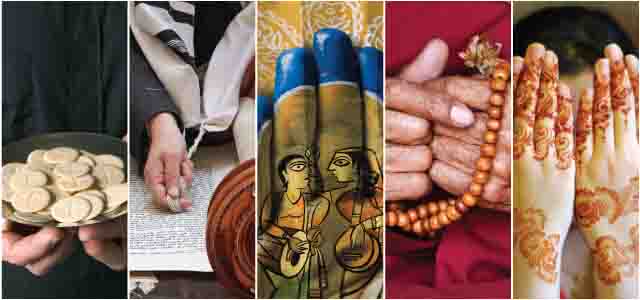
Overall decline in religious restrictions and hostilities despite continued rise in religion-related terrorism
Pew Research Center Religion & Public Life, 23 June 2016
Worldwide, both government restrictions on religion and social hostilities involving religion decreased modestly from 2013 to 2014 despite a rise in religion-related terrorism, according to Pew Research Center’s latest annual study on global restrictions on religion.
Of the 198 countries included in the study, 24% had high or very high levels of government restrictions in 2014 (the most recent year for which data are available), down from 28% in 2013. There was a similar decline in the share of countries with high or very high social hostilities involving religion, which dropped from 27% to 23%. This is the second year in a row the number of countries with this level of religious restrictions has declined, after…
Pew Research: Latest Trends in Religious Restrictions and Hostilities
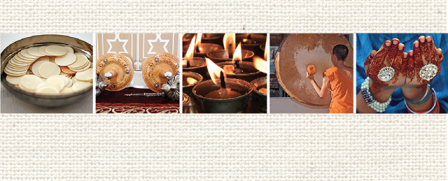
Overall decline in social hostilities in 2013,
though harassment of Jews worldwide reached a seven-year high
Pew Research Center Religion & Public Life, 26 February 2015
Worldwide, social hostilities involving religion declined somewhat in 2013 after reaching a six-year peak the previous year, but roughly a quarter of the world’s countries are still grappling with high levels of religious hostilities within their borders, according to the Pew Research Center’s latest annual study on global restrictions on religion.
The new study finds that the share of countries with high or very high levels of social hostilities involving religion dropped from 33% in 2012 to 27% in 2013, the most recent year for which data are available. These types of hostilities run the gamut from vandalism of religious…
Pew Research: Religious Hostilities Reach Six-Year High
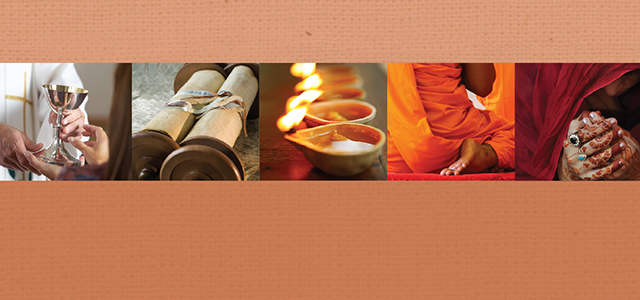
Pew Research Religion & Public Life, 14 January 2014
The share of countries with a high or very high level of social hostilities involving religion reached a six-year peak in 2012, according to a new study by the Pew Research Center. A third (33%) of the 198 countries and territories included in the study had high religious hostilities in 2012, up from 29% in 2011 and 20% as of mid-2007. Religious hostilities increased in every major region of the world except the Americas. The sharpest increase was in the Middle East and North Africa, which still is feeling the effects of the 2010-11 political uprisings known as the Arab Spring.1 There also was a significant increase in religious hostilities in the Asia-Pacific region, where China edged into the “high” category for the first time.
The…
Pew Research: Arab Spring Adds to Global Restrictions on Religion

Results of a new Pew Research Religion & Public Life Project study on social hostilities toward and global restrictions on religion were released on 20 June 2013. This is the fourth time the Pew Research Center has reported on religious restrictions around the globe.
From the Report: “At the onset of the Arab Spring in late 2010 and early 2011, many world leaders, including U.S. President Barack Obama, expressed hope that the political uprisings in the Middle East and North Africa would lead to greater freedoms for the people of the region, including fewer restrictions on religious beliefs and practices. But a new study by the Pew Research Center finds that the region’s already high overall level of restrictions on religion – whether resulting from government policies or from social hostilities – continued to increase in 2011.
“Before the Arab Spring, government restrictions on religion and social hostilities involving religion were higher in the Middle East and North Africa than in any other region of the world. Government restrictions in the region remained high in 2011, while social hostilities markedly increased. For instance, the number of countries in the region experiencing sectarian or communal violence between religious groups doubled from five to 10. (See sidebar on the Middle East-North Africa region.)
“The Americas, Europe, sub-Saharan Africa and the Asia-Pacific region all had increases in overall restrictions on religion in 2011. Government restrictions declined slightly in Europe, but social hostilities increased. Asia and the Pacific had the sharpest increase in government restrictions, though the level of social hostilities remained roughly the same. By contrast, social hostilities edged up in sub-Saharan Africa, but government restrictions stayed about the same. Both government restrictions and social hostilities increased slightly in the Americas.
“Globally, the share of countries with high or very high restrictions on religion rose from 37% in the year ending in mid-2010 to 40% in 2011, a five-year high. Because some of the most restrictive countries are very populous, more than 5.1 billion people (74%) were living in countries with high government restrictions on religion or high social hostilities involving religion, the brunt of which often falls on religious minorities.
“Among the world’s 25 most-populous countries, Egypt, Indonesia, Russia and Pakistan had the most restrictions on religion in 2011. Two countries had record high levels of restrictions or hostilities. Egypt – the most populous country in the Middle East-North Africa region – had a higher level of government restrictions in 2011 than any country in the world previously had in the five years covered by this study. Similarly, Pakistan had the highest level of social hostilities in the world across the five years of the study. Indeed, Pakistan was the first country to score 10 out of 10 points on either of the restrictions indexes, signifying the presence of all 13 types of hostilities measured by the study.”
For details and further information consult the study at the links below.
Conference Call Transcript – The World’s Muslims: Religion, Politics and Society
The Pew Forum on Religion & Public Life, Conference Call Transcript – 30 April 2013
A new Pew Research Center survey of Muslims in 39 countries around the globe finds that most adherents of the world’s second-largest religion are deeply committed to their faith and want its teachings to shape not only their personal lives but also their societies and politics. While many Muslims favor making sharia official law in their country, the report finds that there also is widespread support for democracy…
The World’s Muslims: Religion, Politics and Society
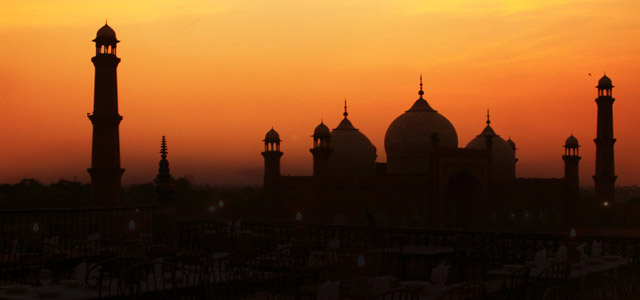
Pew Research Center Report, April 30, 2013. A new Pew Research Center survey of Muslims around the globe finds that most adherents of the world’s second-largest religion are deeply committed to their faith and want its teachings to shape not only their personal lives but also their societies and politics. In all but a handful of the 39 countries surveyed, a majority of Muslims say that Islam is the one true faith leading to eternal life in heaven and that belief in God is necessary to be a moral person. Many also think that their religious leaders should have at least some influence over political matters. And many express a desire for sharia – traditional Islamic law &ndash…
Gay Marriage Around the World – Pew Forum Analysis
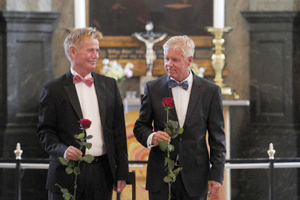
Pew Research Center Report, updated June 19, 2014. The Pew Forum on Religion & Public Life has updated a report first issued on 8 February 2103 concerning gay marriage worldwide. A growing number of governments around the world are considering whether to grant legal recognition to same-sex marriages. About a dozen countries currently have national laws allowing gays and lesbians to marry, mostly in Europe and the Americas. In three other countries, including the United States, some jurisdictions allow same-sex couples to wed, while others do…
Applying God’s Law: Religious Courts and Mediation in the U.S.
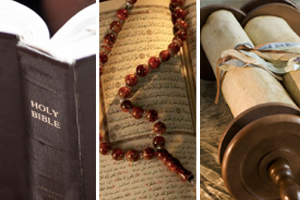
Pew Research Center Report April 8, 2013. Across the United States, religious courts operate on a routine, everyday basis. The Roman Catholic Church alone has nearly 200 diocesan tribunals that handle a variety of cases, including an estimated 15,000 to 20,000 marriage annulments each year. In addition, many Orthodox Jews use rabbinical courts to obtain religious divorces, resolve business conflicts and settle other disputes with fellow Jews. Similarly, many Muslims appeal to Islamic clerics to resolve marital disputes and other disagreements with fellow Muslims.
For the most part, religious courts and tribunals operate without much public notice or controversy. Occasionally, however, issues involving religious law or religious courts garner media attention. The handling of clergy sexual abuse cases under Catholic canon law, for example, has come under scrutiny. Internal church proceedings aimed at disciplining Protestant clergy have generated news coverage because they have highlighted debates over same-sex marriage and openly gay ministers. There also have been public protests against Orthodox Jewish men who refused to grant their wives a religious divorce. Meanwhile, bills aimed at banning the use of Islamic (sharia) law – or at restricting the application of religious or foreign law in general – have been introduced in more than 30 state legislatures. (For more details on those legislative initiatives, see the map graphic “State Legislation Restricting Use of Foreign or Religious Law.”)
Disputes over the laws of various religious traditions have occasionally made their way into U.S. civil courts, but the Supreme Court consistently has ruled that judges and other government officials may not interpret religious doctrine or rule on theological matters. In such cases, civil courts must either defer to the decisions of religious bodies or adjudicate religious disputes based on neutral principles in secular law. For example, in recent years the Episcopal Diocese of Virginia has battled in state court with several congregations over control of buildings, property and funds after the congregations voted to join more theologically conservative branches of the worldwide Anglican Communion. So far, the cases have been decided in favor of the diocese using contract and real estate law rather than church law.
(Introduction, notes omitted.)
Pew Forum Report, Religion in the News: Islam Was No. 1 Topic in 2010
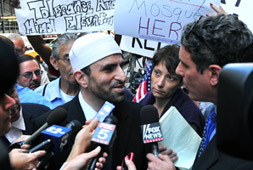
24 February 2011 – The Pew Forum on Religion and Public Life
According to a study recently released by the Pew Research Center’s Project for Excellence in Journalism and the Pew Forum on Religion and Public Life, events and controversies related to Islam dominated U.S. press coverage of religion in 2010. Much of the coverage focused on the plan to build a mosque and Islamic center near the site of the September 11, 2001 terrorist attacks in New York City. Also in the news was a Florida pastor’s threat to organize a public burning of the Koran and commemorations of the anniversary of the Sept. 11 attacks. Stories related to these three events collectively accounted for more than 40% of all religion-related coverage studied in mainstream U.S. media (broadcast and cable television, newspapers, radio and major news websites).
As a general matter, the study noted that mainstream media devoted more attention to religion in 2010 than in any year since the Pew Research Center began measuring coverage of religion and other subjects in 2007, with the amount of space or time media devoted to religion doubling between 2009 and 2010, though the percentage of total coverage is still very small (about 1% of total coverage in 2009, 2% in 2010). For the first time since tracking began in 2007, neither the Catholic Church nor religion’s role in American politics was the No. 1 topic of religion coverage in major news outlets.
The Global Religious Landscape – 18 December 2012
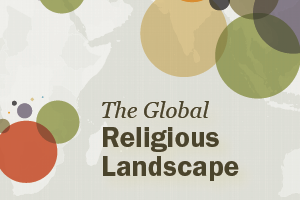
A Report on the Size and Distribution of the World’s Major Religious Groups as of 2010
Worldwide, more than eight-in-ten people identify with a religious group. A comprehensive demographic study of more than 230 countries and territories conducted by the Pew Research Center’s Forum on Religion & Public Life estimates that there are 5.8 billion religiously affiliated adults and children around the globe, representing 84% of the 2010 world population of 6.9 billion….
Pew Forum Report – 14 December 2012
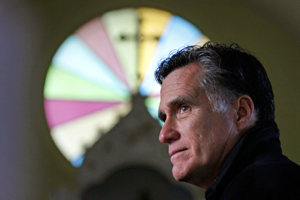
Americans Learned Little About the Mormon Faith, But Some Attitudes Have Softened
America’s “Mormon moment” is over, and public opinion appears to be little changed. Eight-in-ten Americans (82%) say they learned little or nothing about the Mormon religion during the presidential campaign, according to a new Pew Research Center poll. Most Americans still are unable to correctly answer basic questions about the history and sacred texts of the Mormon Church. And three-in-ten Americans continue to consider the Mormon religion a non-Christian faith, though there appears to be some warming of attitudes toward Mormonism, especially among religious groups that voted heavily for Mitt Romney in the 2012 election.
…
Rising Tide of Restrictions on Religion
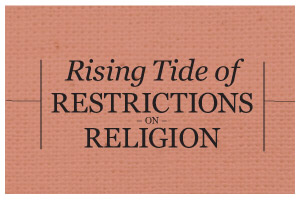
The Pew Research Center’s Forum on Religion & Public Life has on September 20, 2012 released the third in a series of reports analyzing the extent to which governments and societies around the world impinge on religious beliefs and practices. The new report looks at the extent and direction of change in religious restrictions from the year ending in mid-2009 to the year ending in mid-2010. Where appropriate, it also compares the situation as of mid-2010 with the situation in the baseline year of the study (mid-2006 to mid-2007). According to the report, a “rising tide of restrictions on religion” spread across the world during this perioid. Restrictions on religion rose in each of the five major regions of the world – including in the Americas and sub-Saharan Africa, the two regions where overall restrictions previously had been declining.
The share of countries with high or very high restrictions on religious beliefs and practices rose from 31% in the year ending in mid-2009 to 37% in the year ending in mid-2010. Because some of the most restrictive countries are very populous, three-quarters of the world’s approximately 7 billion people live in countries with high government restrictions on religion or high social hostilities involving religion, up from 70% a year earlier.
Restrictions on religion rose not only in countries that began the year with high or very high restrictions or hostilities, such as Indonesia and Nigeria, but also in many countries that began with low or moderate restrictions or hostilities, such as Switzerland and the United States.
These reports have drawn widespread attention to the fact that a substantial portion of the world’s population – 75% as of mid-2010 – lives in countries where governments, social groups or individuals restrict people’s ability to freely practice their faith. The reports also have generated significant interest for how they bring social science research methods to bear on the study of religious restrictions. The methodology used in the reports provides a quantitative framework that those involved in the study of religious freedom can use to monitor changes in restrictions on religion over time, across the world, in specific geographical regions and in individual countries.
(Text above taken from the Report)
To view the full report, as well as the reports issued in 2011 and 2009, click the links below.
The World’s Muslims: Unity and Diversity
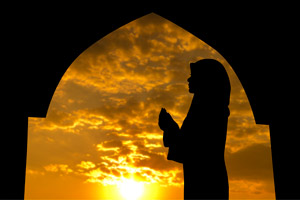
Pew Research Center Report, August 9, 2012. The world’s 1.6 billion Muslims are united in their belief in God and the Prophet Muhammad and are bound together by such religious practices as fasting during the holy month of Ramadan and almsgiving to assist people in need. But they have widely differing views about many other aspects of their faith, including how important religion is to their lives, who counts as a Muslim and what practices are acceptable in Islam, according to a worldwide survey by the Pew Research Center’s Forum on Religion & Public Life.
The survey, which involved more than 38,000 face-to-face interviews in over 80 languages, finds that in addition to the widespread conviction that there is only one God and that Muhammad is His Prophet, large percentages of Muslims around the world share other articles of faith, including belief in angels, heaven, hell and fate (or predestination). While there is broad agreement on the core tenets of Islam, however, Muslims across the 39 countries and territories surveyed differ significantly in their levels of religious commitment, openness to multiple interpretations of their faith and acceptance of various sects and movements.
Read more at the links below.
The World’s Muslims: Unity and Diversity
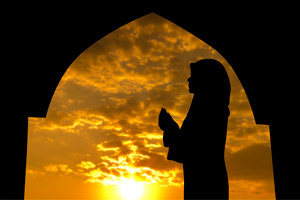
August 9, 2012 – The Pew Forum on Religion & Public Life
The world’s 1.6 billion Muslims are united in their belief in God and the Prophet Muhammad and are bound together by such religious practices as fasting during the holy month of Ramadan and almsgiving to assist people in need. But they have widely differing views about many other aspects of their faith, including how important religion is to their lives, who counts as a Muslim and what practices are acceptable in Islam, according to a worldwide survey by the Pew Research Center’s Forum on Religion & Public Life.
The survey, which involved more than 38,000 face-to-face interviews in over 80 languages, finds that in addition to the widespread conviction that there is only one God and that Muhammad is His Prophet, large percentages of Muslims around the world share other articles of faith, including belief in angels, heaven, hell and fate (or predestination). While there is broad agreement on the core tenets of Islam, however, Muslims across the 39 countries and territories surveyed differ significantly in their levels of religious commitment, openness to multiple interpretations of their faith and acceptance of various sects and movements.
2012 American Values Survey
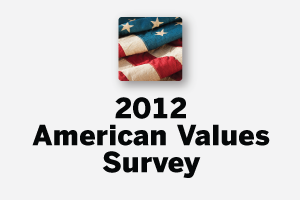
The latest Pew Research Center American Values study finds that the United States continues to be a highly religious nation. Two-thirds of the public (67%) agrees with each of a series of three religious statements, affirming that prayer is an important part of their daily life, that “we will all be called before God at the Judgment Day” and that they never doubt the existence of God. When the first values study was conducted in 1987, a virtually identical number (68%) agreed with all three of these statements….
Religion in Prisons: A 50-State Survey of Prison Chaplains
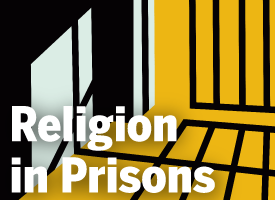
The Pew Research Center has on 22 March 2012 released the result of a poll conducted among chaplains of prisons in all fifty states.
From the Preface:
Religion and religious people have always been a presence in American prisons. Indeed, some of the country’s first prisons were established…
Pew Forum: Religion & Politics 2012
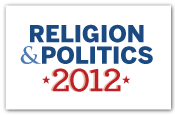
The Pew Forum on Religion & Public Life released on 21 March 2012 the results of a poll concerning the roll of religion in current American politics. The survey finds signs of public uneasiness with the mixing of religion and politics. The number of people who say there has been too much religious talk by political leaders stands at an all-time high since the Pew Research Center began asking the question more than a decade ago. And most Americans continue to say that churches…
Faith on the Move: The Religious Affiliation of International Migrants
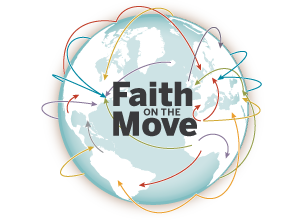
Faith on the Move, a study by the Pew Research Center’s Forum on Religion & Public Life, published on 8 March 2012, focuses on the religious affiliation of international migrants, examining patterns of migration among seven major groups: Christians, Muslims, Hindus, Buddhists, Jews, adherents of other religions and the religiously unaffiliated.
About 3% of the world’s population has migrated across international borders. While that may seem like a small percentage, it represents…
Religion in the News: Islam and Politics Dominate Religion Coverage in 2011
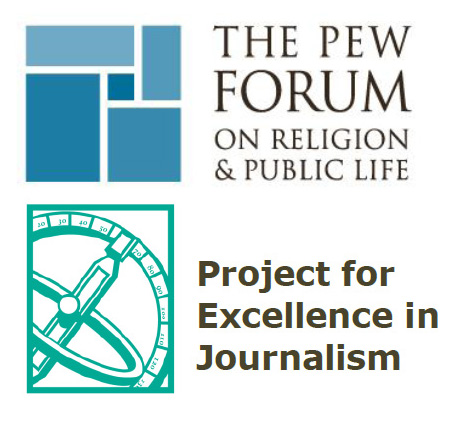
Pew Research Forum / Project for Excellence in Journalism
Joint Release – 23 February 2012
Overview
The biggest religion stories of 2011 involved tensions over Islam and questions about faith in presidential politics, especially Mormonism, according to an annual review of religion in the news by the Pew Research Center’s Project for Excellence in Journalism (PEJ) and the Pew Research Center’s Forum on Religion &…
Pew Forum Publishes Report on Latter-day Saints in the United States
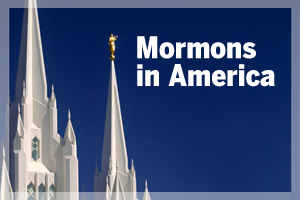
The Pew Forum on Religion and Public Life has published the findings of a comprehensive survey of more than 1,000 members of the Church of Jesus Christ of Latter-day Saints living in the United States. The study is “the first of its kind ever published by a non-LDS research organization.” The findings were made available on the Pew Forum website on 12 January 2012, and three articles summarizing the findings were prepared by Joseph Walker of the LDS-owned Deseret News…
Pew Internet: Civic Engagement of Religiously Active Americans

According to a study released on 23 December 2011, “religiously active Americans are more trusting of others, and they are more involved in groups and in their communities – they also feel better…
Pew Internet: Civic Engagement of Religiously Active Americans

According to a study released on 23 December 2011, “religiously active Americans are more trusting of others, and they are more involved in groups and in their communities – they also feel better about their locales.” The study, conducted by the Pew Internet & American Life Project, found…
Global Christianity: A Pew Forum Report
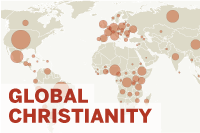
The Pew Forum on Religion and Public Life has announced results of a demographic study of more than 200 countries, tracking the size and distiribution of the world’s Christian population. According to the study, released on 21 December 2011, “there are 2.18 billion Christians of all ages around the world, representing nearly a third of the estimated 2010 global population of 6.9 billion. Christians are also geographically widespread – so far-flung, in fact, that no single continent or region can indisputably claim to be the center of global Christianity.” For more…
Lobbying for the Faithful: Religious Advocacy Groups in Washington, D.C.
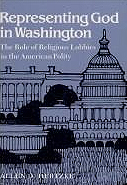
A study released 21 November 2011 by the Pew Forum on Religion in Public Life notes a dramatic increase in religious advocacy groups over the past forty years. “The number of organizations engaged in religious lobbying or religion-related advocacy in Washington, D.C., has increased roughly fivefold in the past four decades, from fewer than 40 in 1970 to more than 200 today.” Such groups “collectively employ at least 1,000 people in the greater Washington area and spend at least $390 million a year on efforts to influence national public policy. As a whole, religious advocacy organizations work on about 300 policy issues.” These policy issues are no longer restricted merely to domestic affairs: “roughly as many groups work only on international issues as work only on domestic issues, and nearly two-thirds of the groups work on both.
Primary Researcher on the project was Allen D. Hertzke, Pew Forum Visiting Senior Research Fellow 2008-2009. Hertzke is Presidential Professor of Political Science, University of Oklahoma. His…
Pew Research Center Releases American–Western European Values Gap Report
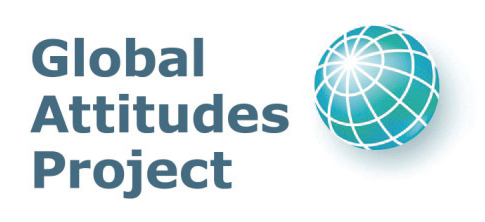
The Pew Research Center has on 17 November 2011 released the results of a new survey study exploring how Americans differ from Europeans in their views on religion. The survey by the Pew Research Center’s Global Attitudes Project compares American attitudes on religion with those of residents in Britain, Spain, France, and Germany. …
Robert Smith on Pew Forum Report: Also Remember Shared Values, Common Goals
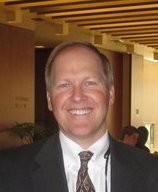
Professor Robert T. Smith, Managing Director of the International Center for Law and Religion Studies at the J. Reuben Clark Law School, Brigham Young University, was quoted extensively in an article by Michael DeGroote published in the 27 August 2011 edition of The Deseret News. The article appeared in response to a recent report of the Pew Research Center’s Forum on Religion & Public Life entitled “Rising Restrictions on Religion.” The report, prepared under the direction of Brian J. Grim, Pew senior researcher and director of cross-national data, traces developments during the period 2006-2009 and notes alarming trends suggesting increasing restrictions on religious freedoms…
Pew Forum Study Notes Rising Restrictions on Religion Worldwide
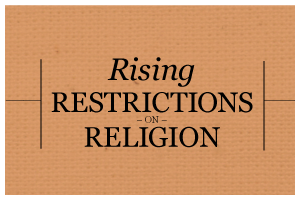
According to a comprehensive study released on 9 August 2011 by the Pew Forum on Religion and Public Life, one-third of the world’s population experienced an increase in restrictions on religion during the period of the study. The study, Rising Restrictions on Religion, finds that restrictions on religious beliefs and practices rose between mid-2006 and mid-2009 in 23 of the world’s 198 countries (12%), decreased in 12 countries (6%) and remained essentially unchanged in 163 countries (82%)….
The Future of the Global Muslim Population
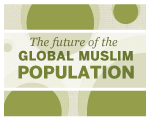
According to an analysis published by the Pew Forum in January 2011, the world’s Muslim population is expected to increase by about 35% in the next 20 years, rising from 1.6 billion in 2010 to 2.2 billion by 2030, according to new population projections by the Pew Research Center’s Forum on Religion & Public Life.
Globally, the Muslim population is forecast to grow at about twice the rate of the non-Muslim population over the next two decades – an average annual growth rate of 1.5% for Muslims, compared with 0.7% for non-Muslims. If current trends continue, Muslims will…
Pew Forum Study: Christians Face Highest Incidence of Harassment Worldwide
October 2010 – Brussels
In a 5 October 2010 speech before the European Parliament in Brussels, Dr. Brian Grim, Senior Researcher, Pew Forum on Religion & Public Life, addressed the topic “Religious Persecution and Discrimination against Christians and Members of Other Religions.” Reiterating Pew study findings that “nearly 70 percent of the world’s 6.8 billion people live in countries with high restrictions on religion,” Dr. Grim observed that new findings, to be released in an updated Global Restrictions on Religion report, show that “Christians faced governmental and societal harassment in a larger share of the world’s countries than did other religious groups individually.” In fact, “Christians faced some sort of harassment in two-thirds of all countries.”
Pew Forum Releases U.S. Religious Knowledge Survey
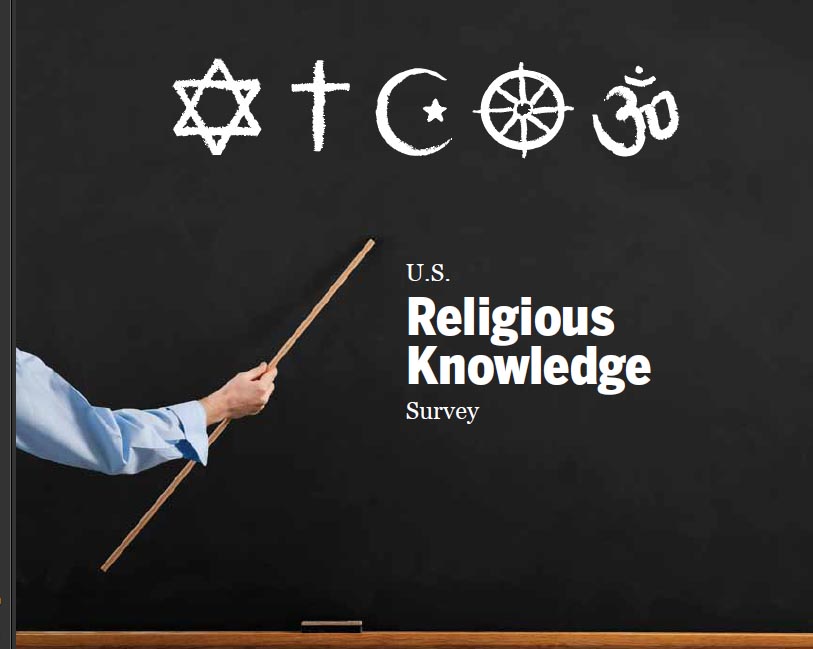
September 2010 – Washington, D.C.
The Pew Forum on Religion & Public Life has released the results of a survey of 3,412 people, conducted between May and June of 2010 and intended to test a broad range of religious knowledge, including understanding of the Bible, core teachings of different faiths, and major figures in religious history. On average, Americans correctly answered half of a set of 32 questions. Highest scores were from Atheists/Agnostics (average of 20.9 correct responses), Jews (average 20.5 correct), and Mormons (average 20.3…
Global Restrictions on Religion – December 2009
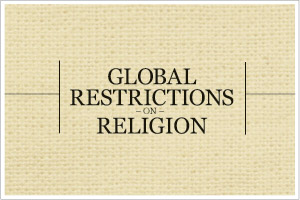
For more than half a century, the United Nations and numerous international organizations have affirmed the principle of religious freedom. For just as many decades, journalists and human rights groups have reported on persecution of minority faiths, outbreaks of sectarian violence and other pressures on religious individuals and communities in many countries. But until now, there has been no quantitative study that reviews an extensive number of sources to measure how governments and private actors infringe on religious beliefs and practices around…
U.S. Religious Landscape Survey
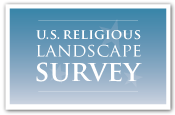
A study published in June 2008 by the Pew Forum on Religion & Public Life details the religious makeup, religious beliefs and practices as well as social and political attitudes of the American public. The U.S. Religious Landscape Survey, based on interviews with more than 35,000 American adults, reveals a deep and broad religiosity among Americans. The survey found that that 92 percent believe in God or a universal spirit – including one in five of those who call themselves atheists. More than half of Americans polled pray at least once a day. Though 78 percent identify as Christian, American society is pluralistic and tolerant, with a most being overwhelmingly open-minded about faith. A majority of Americans – 70 percent – say that many religions, not just their own, can lead to eternal life.
The online section of the report includes dynamic tools that complement the full report. For a video overview and related material, go to the resource page.